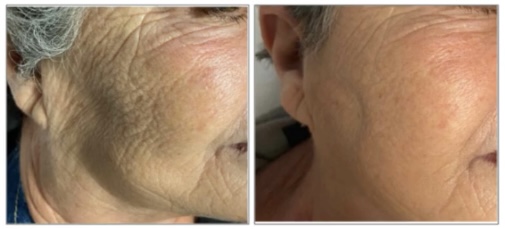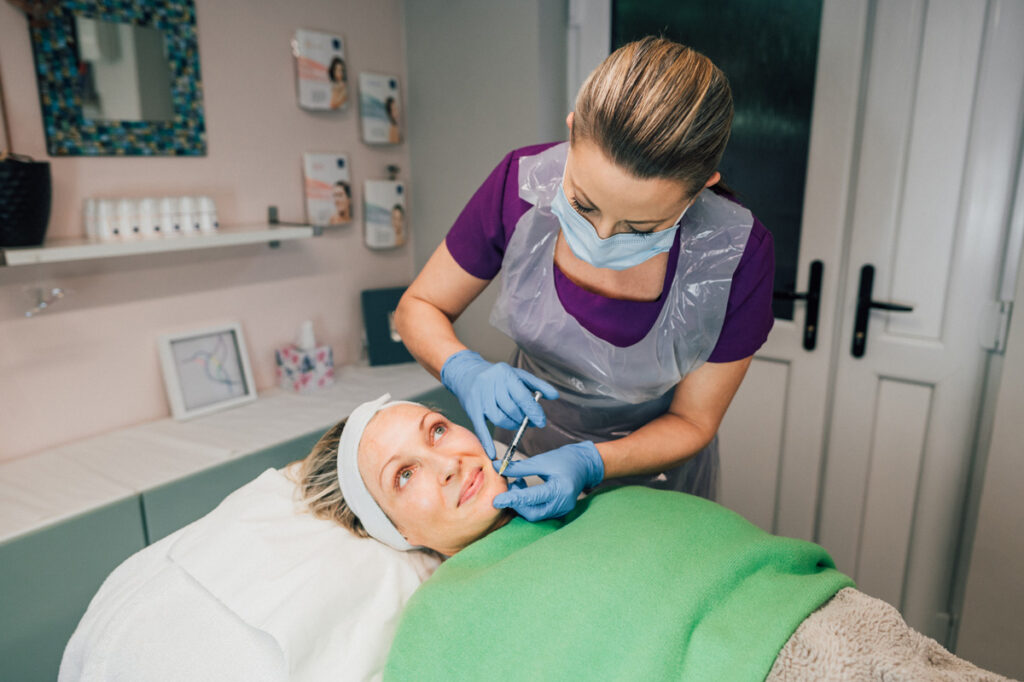Polynucleotides
Polynucleotides offer several benefits for skin health.
They stimulate cellular regeneration (collagen and elastin), enhance skin hydration (locking in moisture), have anti-inflammatory effects (excellent for acne scars and rosacea) promote tissue repair (healing wounds and UV damage), possess antioxidant properties (protecting skin from free radicals), activate DNA repair pathways, promote the formation of new blood vessels, and influence the activity of various growth factors. These actions collectively lead to improved skin texture, hydration, and overall appearance.
The use of salmon DNA for skin treatments capitalises on its high biocompatibility with human skin, because the molecular structure of salmon DNA closely resembles human DNA, most importantly it is well-tolerated within the body, minimising the risk of adverse reactions.
Polynucleotides differ from traditional skin boosters like Jalupro or Profhilo, which are primarily hyaluronic acid-based and focus on hydration and volume. Polynucleotides, on the other hand, target cellular regeneration and repair, offering a more comprehensive approach to skin rejuvenation.
With very few side effects polynucleotides are a safe option but occasionally you may experience bruising, tenderness, swelling, itching redness, headache, infection or numbness. It is important to follow post-treatment care instructions, such as using cold (not ice) packs to reduce swelling, avoiding other invasive cosmetic therapies and vaccinations for a certain period, and abstaining from physical exercise and activities like sauna, sunbed, ice baths or exposure to UV radiation after your treatment as well as maintaining adequate hydration.
Contraindications for treatment include pregnancy, breastfeeding, autoimmune disorders, active cancer, HIV, hepatitis, certain medications like aspirin or warfarin, eye disorders, and skin infections.


